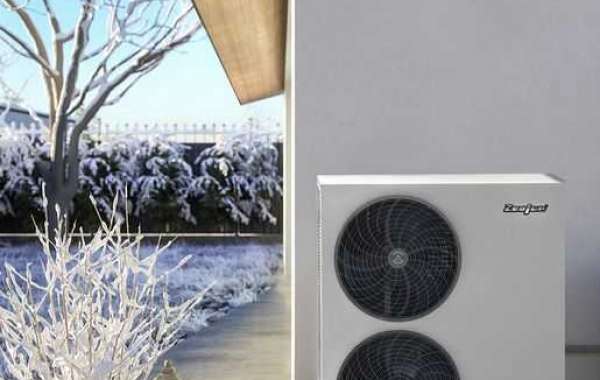Air conditioning has become a commonplace amenity in contemporary residences and workplaces, offering essential respite from sweltering summer temperatures. Despite its prevalence, numerous misconceptions exist about AC usage, potentially resulting in inflated energy costs and unnecessary expenditures. This article aims to dispel five prevailing myths surrounding air conditioners, while also delving into energy-efficient strategies that can aid in reducing expenses while maintaining comfort.
Myth 1: Setting the Thermostat to a Lower Temperature Cools the Room Faster
A prevailing misconception suggests that cranking down the thermostat to an extremely low temperature will hasten the cooling process. However, this notion is entirely baseless. Air conditioners function at a consistent rate, independent of the thermostat setting. In reality, setting the thermostat lower than necessary leads to prolonged AC operation, resulting in wasteful energy consumption and inflated utility expenses.
The California Energy Commission imparts valuable wisdom, advising that for every degree you raise the thermostat above 72°F (22°C), potential cooling cost savings of up to 3% can be achieved. Therefore, adjusting your thermostat to 78°F (25.5°C) instead of 72°F can result in approximately 18% savings on your cooling bill, all while maintaining a comfortable indoor environment.
The most effective strategy is to set the thermostat to a comfortable temperature, such as 72-75°F (22-24°C) during the summer. This ensures efficient cooling without burdening the AC unit, allowing you to save money on your energy bill while enjoying a pleasant and cozy atmosphere.
Myth 2: Closing Vents in Unused Rooms Saves Energy
Many individuals believe that closing vents in unused rooms can save energy by redirecting cold air to other parts of the house. However, modern central AC systems are actually designed to maintain a balanced airflow throughout the entire house. As a result, closing vents can disrupt this balance, leading to pressure imbalances that force the AC to work harder, potentially causing damage to the system.
Verified by the US Department of Energy, the act of closing vents in unused rooms can elevate pressure in the ductwork, leading to air leaks and decreased efficiency. Astonishingly, this practice may result in higher energy bills instead of reducing them. Instead, a more effective approach involves prioritizing the sealing of leaks and proper insulation of your home. By implementing these measures, you can prevent cooled air from escaping, ensuring a consistent temperature throughout your living spaces. This optimization of energy usage translates to reduced overall expenses.
Myth 3: Leaving the AC On All Day is More Efficient than Turning it Off
One of the most common misconceptions about air conditioning is the belief that leaving it on all day consumes less energy than turning it off and on repeatedly. This myth arises from the idea that the AC unit works harder to cool the space from scratch when you turn it on, thus using more energy.
Using the air conditioning system continuously throughout the day is highly inefficient, especially when nobody is home or when the outdoor temperatures are cooler. A more effective approach is to utilize a programmable thermostat, which allows you to set cooling periods while you're at home and raise the temperature or turn off the AC when you're away. Implementing this simple adjustment can lead to significant reductions in your utility bills.
According to the U.S. Department of Energy, adjusting your thermostat by 7-10°F for 8 hours each day during the cooling season can result in up to 10% savings on cooling costs annually. By adopting programmable thermostats with temperature scheduling capabilities, you can achieve these savings without compromising your comfort.
Myth 4: Fans Cool the Room, So the AC Isn't Necessary
Fans are undeniably useful for generating a cooling sensation by circulating air throughout the room, providing enhanced comfort. However, it's essential to understand that fans don't actually lower the room's temperature; they merely create a wind-chill effect. Leaving a fan running in an unoccupied room won't cool the air; instead, it only wastes electricity.
The Lawrence Berkeley National Laboratory conducted research and discovered that using ceiling fans in conjunction with the AC allows you to raise the thermostat setting by 4°F without sacrificing comfort. This simple practice can result in significant energy savings, leading to a 10-15% reduction in cooling costs.
Myth 5: Regular AC Maintenance is Unnecessary
Some homeowners overlook the importance of regular AC maintenance, assuming it to be an unnecessary expense. However, neglecting routine maintenance can lead to various issues, such as reduced efficiency, increased energy consumption, and even system breakdowns, ultimately costing you more in the long run.
According to the Consortium for Energy Efficiency (CEE), regular AC maintenance can boost the system's efficiency by up to 15% and prevent costly breakdowns. Additionally, the Environmental Protection Agency (EPA) highlights that a well-maintained AC system can last up to 15 years, while a poorly maintained one may require replacement in as little as 5 years.
By scheduling annual professional maintenance for your AC unit, you ensure that it operates at its peak efficiency, avoiding unnecessary strain and prolonging its lifespan. Moreover, regular tasks such as changing air filters and keeping the outdoor unit clean contribute to improved energy efficiency, saving you money on repairs and replacements.
Conclusion:
This article incorporates research data to provide solid evidence supporting the debunking of common AC myths. By basing decisions on data and adopting energy-efficient practices like using programmable thermostats, fans, and proper maintenance, you can effectively reduce your cooling costs while maintaining comfort during the summer. However, to elevate your energy-saving efforts, homeowners should consider the use of air source heat pumps.
Air source heat pumps from trusted air to water heat pump manufacturer serve as highly efficient and eco-friendly alternatives to traditional AC systems. Operating by extracting heat from the outdoor air and transferring it indoors during colder months, and vice versa in summer, they showcase remarkable performance. Department of Energy studies demonstrate that air source heat pumps significantly reduce energy consumption for both heating and cooling, leading to substantial savings on utility bills.
By optimizing thermostat settings, using fans wisely, investing in regular AC maintenance, and exploring air source heat pumps, these simple steps not only save you money but also contribute to a more sustainable future. Next time you reach for the thermostat, bear in mind these debunked myths and make the most of your cooling system while cutting down on unnecessary expenses. Embrace air source heat pumps to maximize energy efficiency and comfort throughout the year. For those contemplating heating and cooling options, remembering the benefits of air source heat pumps and exploring reputable heat pump manufacturers can create a more energy-efficient and eco-friendly living space.
tag: pool heat pump , air source heat pump suppliers , heat pump companies , air to water heat pumps ireland, air to water heat pump retrofit cost, air to water heat pump manufacturers, air to water heat pump installation, high temp air to water heat pump












